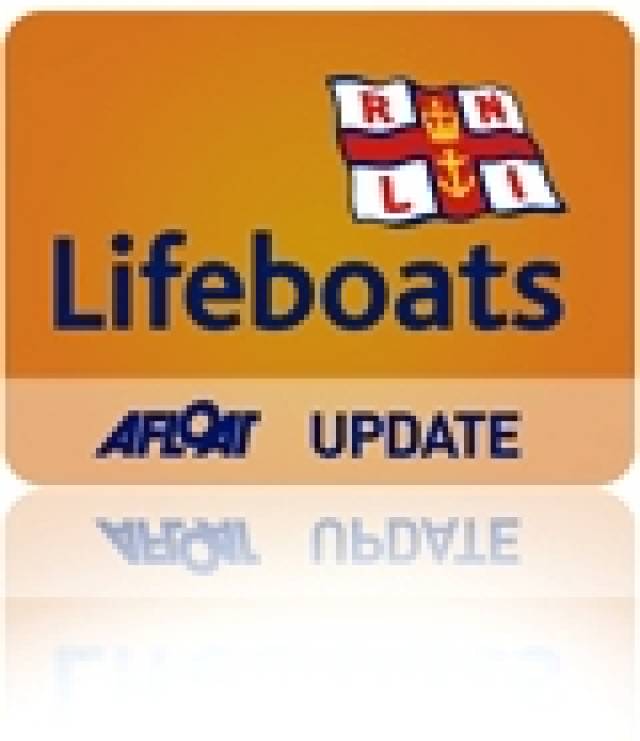On Sunday night July 25 at 23.29hrs, Lough Derg lifeboat Toshiba Wave Warrior launched to investigate a report of a vessel aground at Tinkers Point at the southern end of Illaunmore and found a person deeply unconscious on board.
At 23.14hrs on Sunday night July 25 Lough Derg RNLI lifeboat was requested to launch following a report that a vessel was aground at Tinkers Point on the southern tip of the island, Illaunmore. The lifeboat with helm Peter Clarke, Eleanor Hooker and Colin Knight on board, launched at 23.29hrs. Winds were west, north-west, Force 2 to 3. The lifeboat came alongside the person who reported the vessel aground at 23.40hrs. He had attempted to get near the vessel in his lakeboat but was unable to do so due to the dangerous shallows. He thought the vessel might have grounded two hours previously.
The lifeboat proceeded to the casualty vessel and was alongside at 23.48hrs. There was one person on board. Crew searched the vessel to make sure that there was no one else on board. The man was found in the helm’s seat and was deeply unconscious and apparently severely hypothermic. All three RNLI crew boarded the vessel and after establishing that the person had a pulse and was breathing, transferred him to the lifeboat. The lifeboat requested an ambulance to attend at the public harbour in Dromineer. On route to Dromineer lifeboat crew wrapped the person in blankets and administered first aid and oxygen. The Lifeboat Medical Advisor, Dr Peter Hooker, was already at the station and, with Deputy Launching Authority Fergal Kerney, met the lifeboat and took over the care of the person when they arrived at 24.02hrs.
At 24.10hrs an Ambulance First Responder came on scene and together with Dr. Hooker continued treatment of the person. Whilst waiting for the ambulance to arrive the person was transferred onto an RNLI stretcher. A member of the public, who was berthed in the public harbour, supplied crew with several sleeping bags with which to wrap the person. Dr. Hooker and the First Responder carried out preliminary checks on the person: blood sugar, temperature, blood pressure and an electrocardiogram. The ambulance arrived on scene at 24.25hrs, however more treatment had to be administered before he was transferred to the Limerick Regional Hospital.
The lifeboat returned to the casualty vessel at Illaunmore. RNLI Crew searched on board for any evidence of the identity of the person. Crew also walked the shoreline at that point on the island to out rule the possibility that anyone might have gone onshore. The lifeboat also circumnavigated the island and crew used a search light to determine whether anyone had made their way onto the island and possibly in need of assistance. When they were satisfied that the person had been alone, they returned to the casualty vessel, took it off the rocks and towed it into Dromineer.
The lifeboat was ready for service again at 02.30hrs.
Related Safety posts
RNLI Lifeboats in Ireland
Safety News
Rescue News from RNLI Lifeboats in Ireland
Coast Guard News from Ireland
Water Safety News from Ireland
Marine Casualty Investigation Board News
Marine Warnings
































































